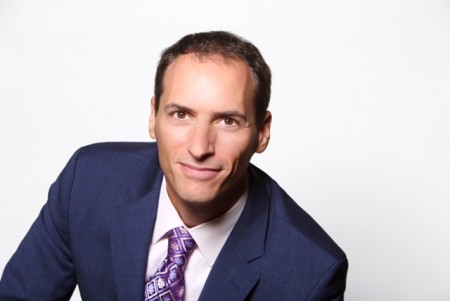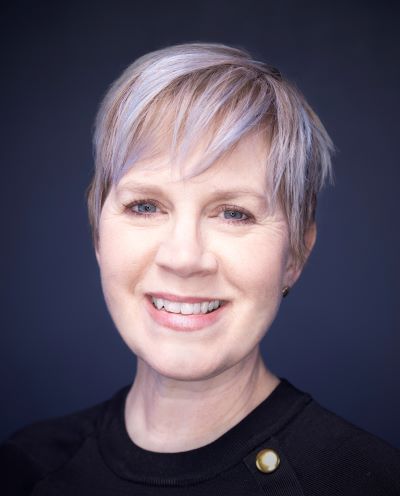Senior legal counsel discusses how to align wellness and e-discovery

Ari Kaplan. Photo by Lauren Hillary.
Ari Kaplan recently spoke with Amy Sellars, senior legal counsel for e-discovery and operations at the CBRE Group, a real estate company, and one of the founders of the Mind-Budget Connection, a new organization focused on empowering e-discovery professionals.
Ari Kaplan: Tell us about your background and the genesis of the Mind-Budget Connection.
Amy Sellars: I have been an e-discovery professional for over a decade. I started my career in the not-for-profit arts and in teaching, so I have a strange background coming to the law. Christine Payne started the Mind-Budget Connection to support the mental well-being of those she works with and those that she knows in the industry. There has been a lot of discussion about wellness, but there has not been much talk about the impact on e-discovery professionals, particularly as a result of the pandemic and cost controls, which have produced a race to the bottom. She emphasized that stress and burnout come when you can’t provide quality at the cost at which you are selling your services, or you cannot make enough to survive. This is especially true for contract reviewers, the quality of their work, and what we are asking them to do under these circumstances. COVID added extra pressure, isolation, higher costs and increased work, so we want to provide some tools to mitigate these challenges.
Ari Kaplan: What is the mission of the Mind-Budget Connection?
 Amy Sellars is senior legal counsel for e-discovery and operations at the CBRE Group and one of the founders of the Mind-Budget Connection.
Amy Sellars is senior legal counsel for e-discovery and operations at the CBRE Group and one of the founders of the Mind-Budget Connection.
Amy Sellars: Our mission is to raise awareness of the importance of understanding what goes into e-discovery projects and not summarily trying to drive down the cost due to a lack a familiarity with the work that has to be done. There is also a sense that AI is magic, but it is not, and e-discovery takes a lot of work and human input. Some lawyers and purchasers do not always appreciate the effort involved or the impact of seemingly basic changes on e-discovery. They have a meaningful effect on the quality and timing. We are willing to pay lawyers $1,200 an hour for substantive work, but for e-discovery, an incredibly important part of litigation, we often do not want to spend the money and then put enormous pressure on people to do things quickly, well, and cheaply. You don’t typically get all three.
Ari Kaplan: What are the most challenging areas for e-discovery professionals?
Amy Sellars: It is being under-resourced, managing new data types and sources, and navigating cost pressure. The past few years have made some of those issues more intense, and we hope people recognize that. We want buyers of e-discovery services to be thoughtful about their requests and provide tools to help people budget their time more effectively.
Ari Kaplan: How has the pandemic impacted the work of those focused on e-discovery?
Amy Sellars: E-discovery professionals tend to work in teams because there is no way one person can do the multiple jobs required. These teams have been split up and are operating remotely but continue to communicate regularly with each other and get their jobs done with a range of new constraints. The pandemic created inefficiencies that produced extra stress while increasing the workload, which most did not anticipate. We were all afraid that the e-discovery services market would falter, and it boomed, so people had to work harder remotely, often without extra resources or time.
Ari Kaplan: What are some best practices for managing a litigation support workload effectively?
Amy Sellars: You cannot manage a litigation support workload without the right information about what’s coming. Those who are not focused on e-discovery cannot effectively create a schedule or allocate resources efficiently because they don’t understand the breadth of the tasks required. There are massive data volumes and an array of data types, so if you do not have strong information governance, people pay a price. Understanding how to flex and map out a project is critical.
Ari Kaplan: How is technology impacting the way e-discovery professionals work?
Amy Sellars: E-discovery teams are bombarded with new technology, which raises a lot of questions about data formats, access and usage. Technology is amazing, and there are many innovative initiatives, but when all of that tech gets pulled into a lawsuit, e-discovery professionals repeatedly face new obstacles. We know how to use most tools, and have a timeline and a process, but multiplying the number of systems makes litigation much more complex.
Ari Kaplan: Why has well-being become such a prominent topic in e-discovery and in legal generally?
Amy Sellars: We are seeing mental well-being deteriorate along with an increased number of posts about suicide, addiction, depression, overwhelm and burnout. People are not doing well. I think we have a societal issue about being strong and aspiring to be a rock star, but when a rock star team member starts to fall apart because they can’t do the quality of work that they want to do in a given situation, it breeds emotional contagion. It’s important to acknowledge that when you start to put too much pressure on people, you can very quickly have a team deteriorate.
Ari Kaplan: How do you see e-discovery changing to accommodate the way professionals now prefer to work?
Amy Sellars: The Mind-Budget Connection is trying to explore how e-discovery has to change, and we are looking for input. We surveyed a large number of professionals and will use the results to produce a white paper we plan to publish this fall. We are hoping that as we evaluate that data, we will be able to make recommendations about how the industry can improve.
Ari Kaplan: What is next for the Mind-Budget Connection?
Amy Sellars: Our goal is to raise awareness and help people change their approach to e-discovery projects and litigation to accommodate the human elements. We want buyers to empower people to do work they can be proud of at a fair rate of compensation, which makes them feel valued.
Listen to the complete interview at Reinventing Professionals.
Ari Kaplan regularly interviews leaders in the legal industry and in the broader professional services community to share perspective, highlight transformative change and introduce new technology at his blog and on iTunes.
This column reflects the opinions of the author and not necessarily the views of the ABA Journal—or the American Bar Association.



